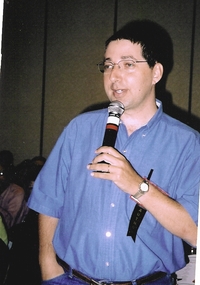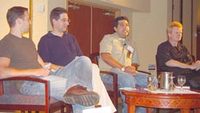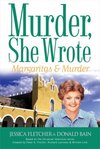Galleycat reports that editor Joe Blades is leaving Ballantine — and publishing.
Why? Though Blades hadn’t responded to email queries as of this writing, burnout
seems to be the biggest issue, according to a recent post by
one of his authors. Though Blades isn’t certain what his next move will be,
it won’t have anything to do with the publishing world.Blades was especially known for editing mystery and crime fiction, and his
author list included Anne Perry, Sandra Scoppettone, Terrill Lee Lankford,
Rochelle Krich, Mary Logue, Gillian Roberts and William Bernhardt. It remains to
be seen how many of these folks will be kept on by Random House, but Blades will
be meeting with various RH brass to discuss which editors get custody of which
authors.
It’s very scary when your editor, often your biggest champion at the publishing house, leaves. When one of my editors left, on the eve of publication of my non-fiction book, any interest in me or the book within the company just vanished… the book was orphaned. There was no effort made by the sales force to sell the book or by the PR department to promote it. Sandra Scoppettone, one of Blades’ authors, is worried this might happen to her:
What worries me is the new book, Too Darn Hot, which will be published in June.
Even if a new contract hadn’t come my way, this editor would’ve still been on
top of things and moved the book as much as possible. As the book is finished
and there’s nothing for a new editor to do on it, it’ll lie there like a lox.
Unless there’s a new contract and then it’ll be different. At the moment my
book is an orphan.
I don’t blame her. I’d be worried, too. On the other hand, losing an editor doesn’t always mean doom for his list of authors. I’ve been extraordinarily lucky at Penguin/Putnam/NAL on the DIAGNOSIS MURDER and MONK books. I’m on my third editor so far (the first was downsized out of a job, the other left for a richer offer) and they’ve all been wonderful… supportive, enthusiastic, and totally committed to the books.




